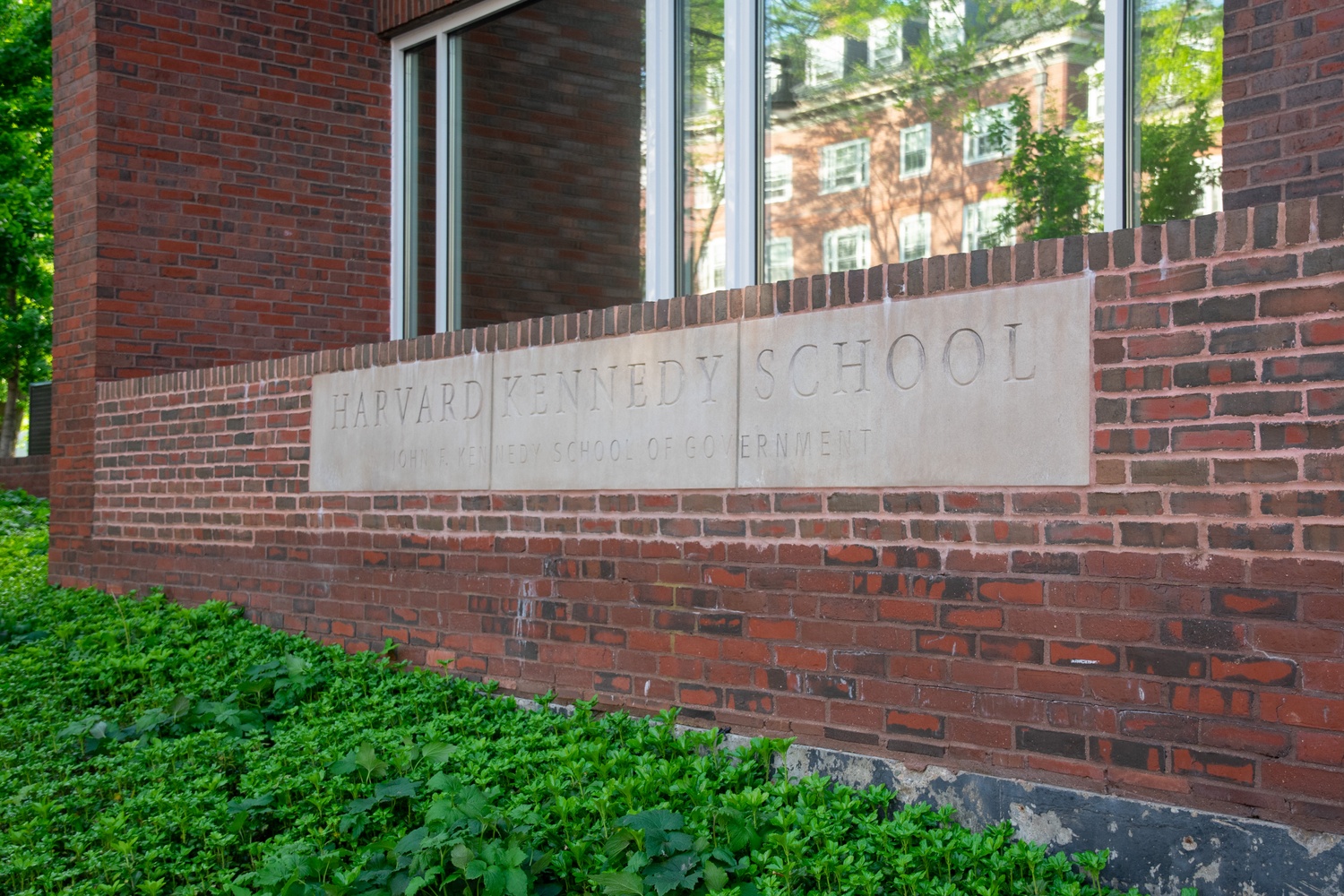
News
Summers Will Not Finish Semester of Teaching as Harvard Investigates Epstein Ties

News
Harvard College Students Report Favoring Divestment from Israel in HUA Survey

News
‘He Should Resign’: Harvard Undergrads Take Hard Line Against Summers Over Epstein Scandal

News
Harvard To Launch New Investigation Into Epstein’s Ties to Summers, Other University Affiliates

News
Harvard Students To Vote on Divestment From Israel in Inaugural HUA Election Survey
HKS Cancels Contingency Plan Allowing International Students To Study Online, Citing Low Demand

The Harvard Kennedy School quietly abandoned the launch of HKS Global – a proposed contingency plan offering online classes for international students – while continuing to offer enrollment options in Canada.
HKS announced tentative plans to offer online classes and a visiting student program in Canada for international students in June for students unable to enter the United States. At the time, Harvard was facing a barrage of attacks on international students from the Trump administration, including challenges to its ability to host visas and an entry ban.
Though both actions were temporarily blocked in court, the program in Canada — offered with the Munk School at the University of Toronto — is moving ahead. According to an HKS spokesperson, a small cohort of international students have opted to continue in Canada, where they will be enrolled as full-time students at the Munk School but receive only HKS degrees.
But when HKS Dean Jeremy M. Weinstein first announced the contingency plans in June, he wrote that they would only be launched with “sufficient demand” from students unable to enter the United States due to visa or entry restrictions.
In a Tuesday email addressed to incoming students who had yet to obtain a visa or to arrive on campus,the school shared that HKS Global will no longer be offered as an enrollment option, citing limited student demand as the reason for the cancellation.
“At the anticipated levels of participation, the cohorts would have been too small and the class offerings too few to ensure the world-class HKS experience that you deserve,” Debra E. Isaacson, the school’s senior associate dean for degree programs and student affairs, wrote in the email.
An HKS spokesperson wrote that after working with international students this summer, they have determined that “most students will be able to join us on campus” — except for a small group that could find their plans complicated by Tuesday’s decision.
HKS Global was originally intended for both new and returning students, while the visiting program at the University of Toronto is available to returning students only. Students in the visiting program will be taught by both HKS and Munk School instructors through a mix of online and in-person classes.
Without online classes, incoming international students who have not yet secured a visa are left with fewer options: to defer the start of their studies or to withdraw from HKS.
For international students in the Master in Public Policy and Master in Public Administration in International Development programs, HKS has extended the deadline for on-campus arrival to Oct. 20, granting students an extra month to obtain a visa and gain entry to the U.S.
International Mid-Career MPA students are allowed to switch to an alternative Public Leadership Credential pathway to begin their studies online. If they complete the credential program within two years, they may return to Harvard to study for the degree without needing to reapply.
Despite wins in court, international students continue to face substantial uncertainty.
Harvard sued the federal government in May after the Department of Homeland Security revoked its Student and Exchange Visitor Program certification, then expanded its complaint after President Donald Trump signed a proclamation in June that banned foreign students from entering the U.S. with Harvard-sponsored visas. A federal judge granted preliminary injunctions against both orders.
But the Trump administration is pressing ahead with a second attempt to revoke Harvard’s SEVP certification — even though it has apparently dropped its initial effort from May, which Harvard’s lawyers said was hasty and gave the University no opportunity to appeal.
And the administration has challenged the judge’s orders. In late June, lawyers for the federal government appealed the preliminary injunction blocking Trump’s proclamation, sending the question to the First Circuit Court.
Earlier in August, after saying the DHS would not move forward with its May 22 SEVP revocation letter, lawyers for the Trump administration moved to dismiss Harvard’s lawsuit under the argument that Trump’s June proclamation — that banned foreign students' entry to the U.S. to attend Harvard – is still constitutional.
The Kennedy School is keeping its options open. The school spokesperson wrote in an email that administrators “remain ready to launch HKS Global as a contingency plan for the future, in the event anything changes and significantly more students need alternative options this year.”
—Staff writer Tanya J. Vidhun can be reached at tanya.vidhun@thecrimson.com. Follow her on X @tanyavidhun.
Want to keep up with breaking news? Subscribe to our email newsletter.
